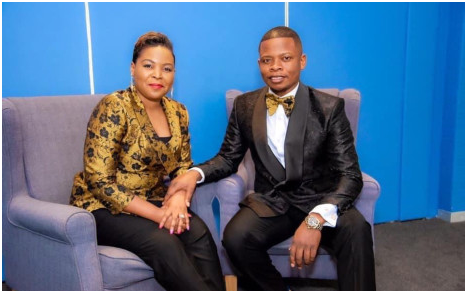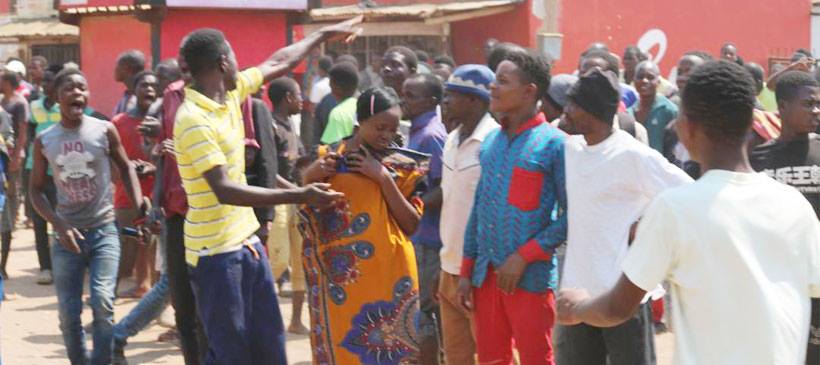Two weeks since fugitives Shepherd Bushiri and his wife, Mary, left South Africa, immigration lawyers are warning that the process to successfully extradite the couple could take years.
Bushiri faces five warrants of arrest in South Africa, while Mary has two.
The Enlightened Christian Gathering Church leader is facing additional warrants for three rape cases. Church members are accusing him of sexual harassment in 2018.
The couple fled to their home country of Malawi earlier in November, violating their bail conditions here where they are accused of fraud, theft and money laundering. The Bushiris’ R5.5 million mansion in Centurion was then forfeited to the state, but this has not deterred them nor dented their pockets while they continue to offer religious services to their legion of fans online.
Just last week, Justice Minister Ronald Lamola made it clear that government was fast-tracking the extradition process to see the fugitives stand trial in South Africa.
“We will continue to finalise the extradition papers, which we intend to send to Malawi within the next two weeks and not within the next 30 days as described by the [Southern African Development Community] protocol,” said Lamola at the post-Cabinet media briefing.
But lawyers with experience in extradition processes say it’s not that easy. On average, it could take up to two years before the couple set foot on South African soil, especially if they are refusing to stand trial here.
Vuyo Manisi, managing director at law firm Vuyo Manisi Incorporated, told Eyewitness News on Tuesday that government was ambitious if it thought the couple would be back here any time soon.
“[Bushiri] is going to make sure it actually doesn’t happen. He has the financial resources to appeal every legal setback thrown at him. And he has friends with political connections as well.”
Meanwhile, Gary Eisenberg, an attorney specialising in immigration and extradition, agreed that it could take years before the Bushiris were extradited, as they hold the right to appeal as part of the SADC agreed-to protocol.
“According to Malawian domestic law, they also have extradition legislation. Whatever happens in terms of that inquiry, Bushiri will have the right to appeal.”
Last week, South Africa applied for the provisional arrest of the Bushiris in Malawi. But they handed themselves over to Malawian authorities, which is different from them being arrested.
His legal team applied for a “habeas corpus” – which is an application to free Bushiri – arguing that Malawi didn’t recognise a provisional arrest.
“[It] confused the daylights out of lawyers everywhere. You can already see that the road to Bushiri’s surrender to South Africa is not going to be paved with roses. It’s going to be a difficult road,” said Eisenberg.
South Africa is now in the process of making a full application for his extradition – but Eisenberg believes Bushiri only asked to appear before an extradition inquiry in Malawi.
But both lawyers said that whatever happened at such an inquiry, Bushiri would have a right to appeal, which they were almost certain would be the route he would choose.
“If he loses the extradition inquiry and the magistrate or the court decides that Bushiri is liable to be extradited, that then goes to the Malawian justice minister to make a decision. Bushiri will again be entitled to appeal. This could be an extremely lengthy period in Malawi,” said Eisenberg.
Manisi said that government was up for a big task to successfully extradite the Bushiris.
“The South African government will have to pull their socks up if they want to bring him back to South Africa.
The next step for government is to provide the Malawian government with a formal extradition request.
Here is how an extradition process is supposed to work, according to the experts:
-
- South Africa has to give the Malawian government an extradition pack.
-
- It consists of two bundles of documents – one to identify who the Bushiris are and the second a clear identification of the charges they face in South Africa.
-
- The charges need to be clear so that the Malawian court can understand.
-
- Then it is up to the Malawian government to make sure that justice is done in Malawi.
-
- An inquiry in Malawi must then decide if he is liable for extradition.
-
- He can appeal all of these processes.
But these are only the criminal sides of the matter. The legal experts warned that this matter was highly politicised and was expected to have many layers to the process.
Source:Eyewitness News

.jpeg&w=60&q=100&h=60)




.jpeg&w=60&q=100&h=60)






